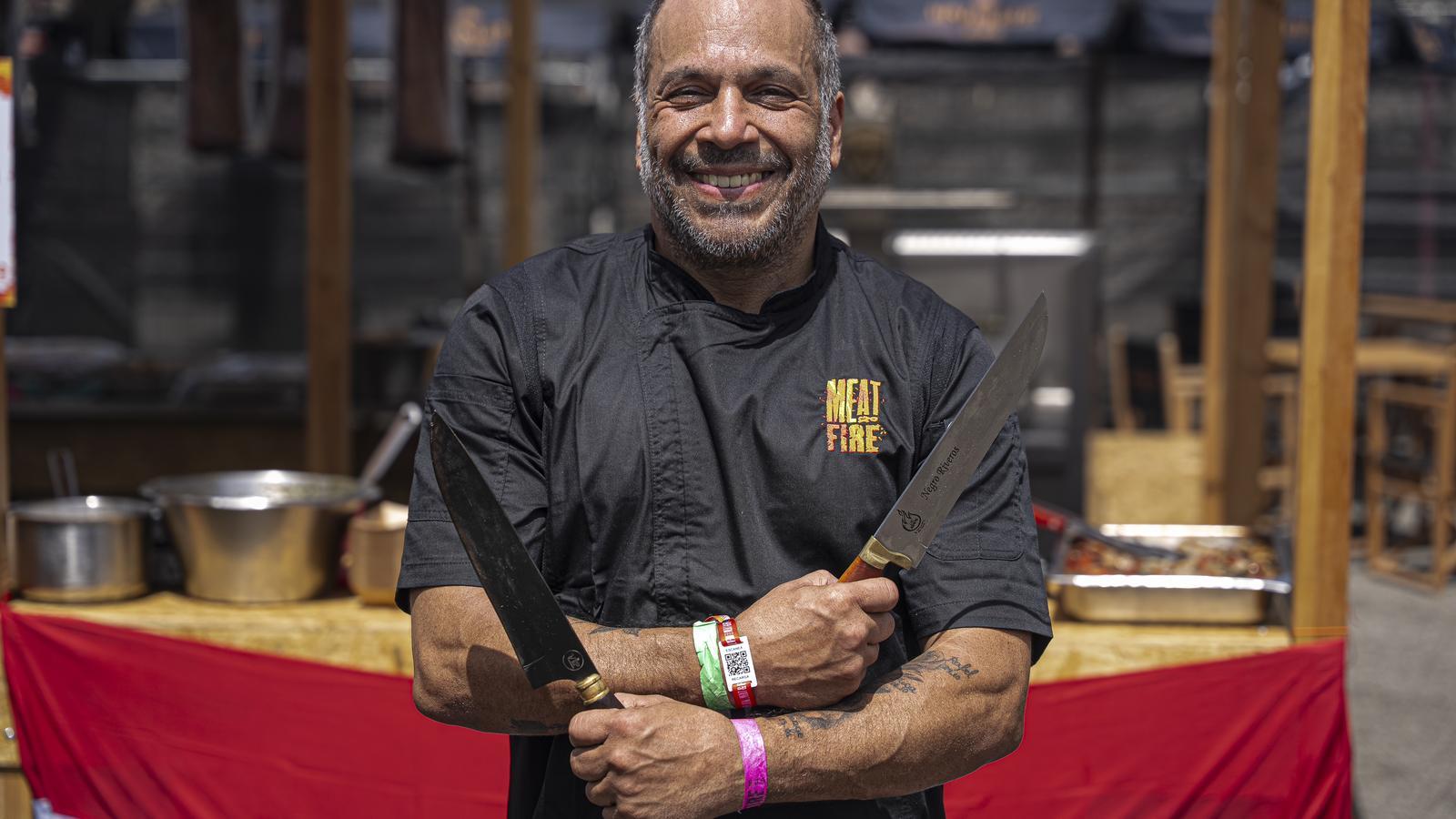“Those of us who live off meat are the ones who respect and love animals the most.”
In love with meat and fire, he abandoned his profession as a lawyer to live his passion.


Fifteen years ago, Negro Riveros left his job as a lawyer to pursue his true passion: asado, a dish that is part of the identity of his country, Paraguay. "There's a grill in every house. Paraguayans are born with fire in their veins. Sundays are sacred. It's the day to get together with friends and family. These gatherings never fail to include asado, which for us is a symbol of friendship and unity. It's present in every celebration, whether it's a birth or a birthday. Any excuse is good for a barbecue."
Negro Riveros speaks with such love of his profession that it's clear he has never regretted leaving law. "It was a drastic change, because I'd been working as a lawyer for many years. But meat was my calling, and I made the leap. Besides, these days, grillers are more valued than many cooks. Before, we were second-rate and they were first-rate. Now it's the other way around, but don't get mad at me for saying that, okay?" he says, laughing.
Making a living from his vocation allows him to overcome the difficulties of a tough job that, among other sacrifices, requires enduring very high temperatures. "In Paraguay, we're used to the heat because the winter is short. But the incredible energy you get when you see the diners enjoying the meat you've prepared is priceless. They're happy faces that make you forget the heat and the pain of spending so many hours on your feet," explains Negro Riveros. "Working with live fire isn't the same as being in a kitchen with all kinds of machines. You can't adjust the grill temperature with a knob. Cooking with live fire is an art. I don't even use a thermometer to check the meat's condition. Just by looking at it, I know when to take it off the heat," he adds.
Rugby and barbecue
Recognized as one of the masters of Paraguayan barbecue, he has participated and won several international competitions and is a regular at carnivorous festivals such as the Meat & Fire from Barcelona and also competed in the television contest MasterChef Paraguay Professionals"And it's all thanks to the asado! You see, I'm not exaggerating when I say it's so important? I've been doing it since I was 13, when I used to prepare it for my rugby teammates and also for the opposing players. After hitting each other during the match, it was time to eat together, leaving the fights on the field," he recalls.
Although he respects people who don't want to eat animals, Negro Riveros believes that we are carnivores by nature. "Many people don't understand that those of us who live off meat are the ones who respect and love animals the most. Now more than ever, it's necessary to know its traceability: to know that it had a good life, a good diet, a painless slaughter... That influences the quality of the meat. Now we know that if we give an animal a good life, it will respond with good meat. In Paraguay, the meat sector is vital to the economy. We are one of the main meat exporters in the world," explains the chef.
To give advice on two recurring debates regarding grilled meat (the point and the salt), he draws on his experience: "There are many theories on this. In the case of the point of the meat, the type of cut controls. With a rib you have more leeway, but with other cuts, not: if you overcook them, they're like shoe soles. In any case, the diner decides, but each cut has its point. And regarding the salt, never previously on raw meat. I put it on the grill. When the meat starts to sweat, it's time to add the salt. And then, when you turn it over. I've always done it this way and no one has ever complained," he concludes.
